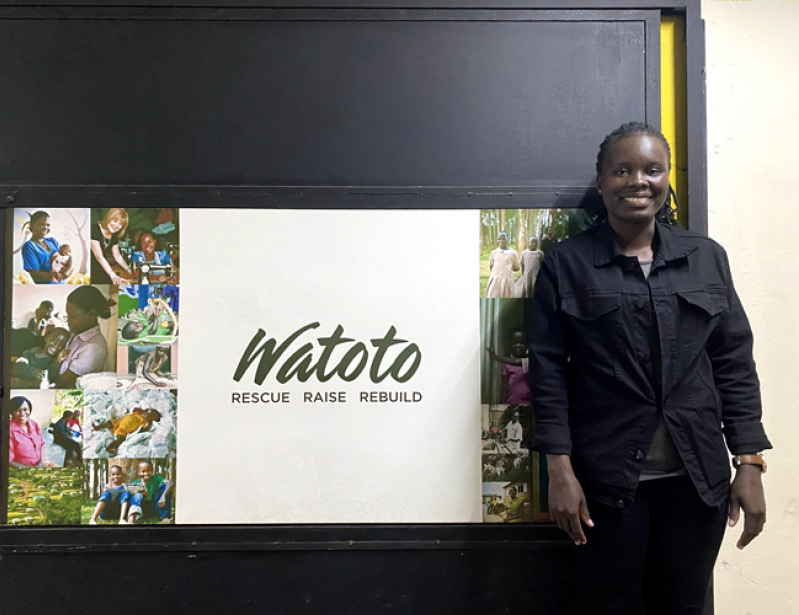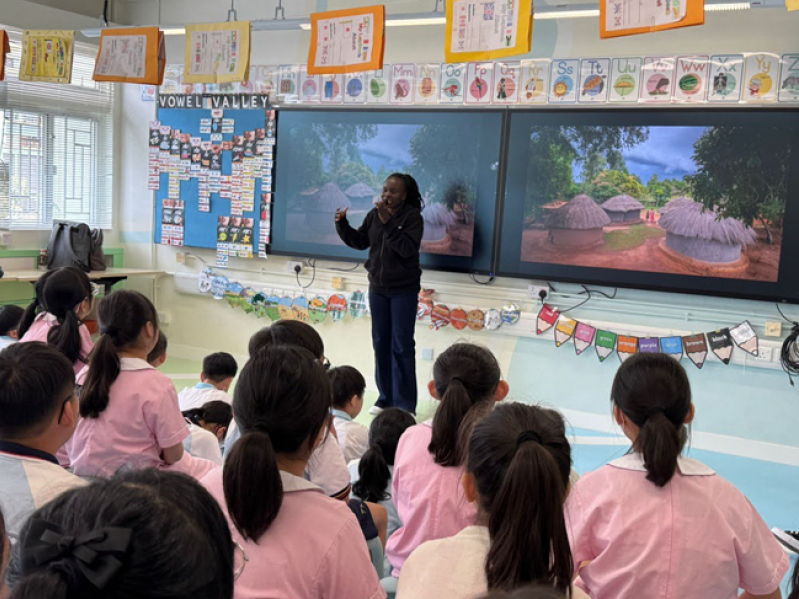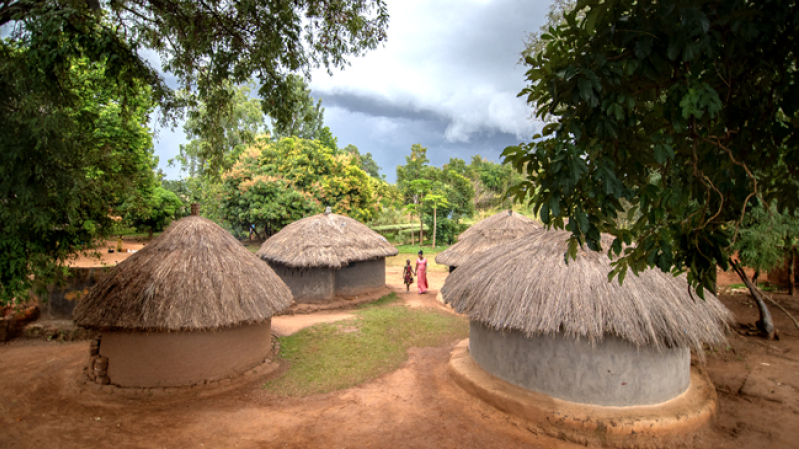
Emily, from Uganda, is a beneficiary of the international charity Watoto’s Keep a Girl in School initiative. Despite growing up in extreme poverty, she always loved learning and excelled academically. In her second year of secondary school, however, her family could no longer afford tuition, and she was forced to drop out. Thanks to Watoto’s intervention, she returned to school and continued her studies. Now 23, Emily has entered university as a law student, fulfilling her dream of higher education.
Watoto Child Care Ministries was founded in Uganda in 1994 by Gary and Marilyn Skinner. Headquartered in Uganda, it operates in 11 countries worldwide, including across Asia, Australia, Brazil, and Canada. The organization is dedicated to supporting orphans, widows, and vulnerable children through Watoto villages, where “Watoto mothers” provide holistic care including education and medical support. Many around the world are familiar with the Watoto Children’s Choir, which tours internationally to share testimonies and raise awareness of the ministry.
This July, Emily traveled with the Watoto team to Hong Kong, where she visited churches, schools, and community groups to share her journey of overcoming hardship, regaining access to education, and pursuing her dreams. The Gospel Herald interviewed Emily to bring her moving story to readers.

The Gospel Herald: Could you tell us a bit about your family background and childhood?
Emily: I was born in a small village on the outskirts of Gulu, a city in northern Uganda. My mother is a hardworking farmer who rises before dawn to work in the fields. My father was a Somali mercenary who met my mother while serving in the South Sudan civil war. He eventually returned to Somalia and never came back. From then on, my siblings and I became war orphans. I am the third of five children, and my brothers and sisters now work outside the home to support our family.
My mother never received any education and is completely illiterate. I still remember going with her once to handle official documents and realizing she couldn’t even write her own name. In that moment, I understood that education was the only way to change our lives. I knew knowledge was the key to escaping poverty.
The Gospel Herald: How did you first get connected with Watoto?
Emily: The government primary school I attended partnered with Watoto’s Keep a Girl in School program. Their staff regularly came to distribute sanitary pads, soap, and underwear. For girls entering puberty, sanitary pads were essential, but many of us couldn’t afford them. A packet cost about one US dollar, which for us was a luxury. Often, we had to choose between buying food and buying sanitary products. Many girls had to tear up old clothes to use as pads, which was unhygienic and meant we couldn’t attend school during our periods. Every time Watoto distributed supplies, I was thrilled—because it meant I could keep going to school, even during menstruation.
The Gospel Herald: But later you had to drop out again. How did you get through that time?
Emily: When I moved on to secondary school, it wasn’t part of the Keep a Girl in School program, so I no longer had support. After one year, my family simply couldn’t pay the fees anymore, and I had to quit school. In Uganda, if you can pay tuition, you study; if not, you stay home. Even during primary school, before my school joined Watoto’s program, my education had been very inconsistent.
I began helping my mother with hard labor. At dawn, I worked in the fields, then went to the stone quarry. The quarry supplied rocks for road construction, and we were required to deliver 15 baskets of crushed stones daily, weighing about 300 kilograms in total. With no machines, we had to smash rocks by hand and carry them.
To secure enough stone, we had to arrive before sunrise. We worked up to 12 hours a day, from 7 a.m. until dark, for only about $2.50. At that time, I felt life was hopeless. I wondered, Is this what my future will always look like? It was very despairing.

The Gospel Herald: How did Watoto reconnect with you?
Emily: I had done well academically in primary school, so Watoto staff looked for me at the secondary school I had attended, but at first, they couldn’t find me. The school refused to disclose my information for privacy reasons. But since I was the first Keep a Girl in School student to complete primary school with outstanding results, they never gave up searching. After a year, they finally learned that I had dropped out, and they arranged for me to move into a Watoto Children’s Village and study at the school there.
Watoto has three children’s villages and seven schools in Uganda. With their support, I completed secondary school and was awarded a scholarship to enter university. Today, I’m a first-year law student.
The Gospel Herald: How do you hope to give back to society?
Emily: At first, I dreamed of becoming a journalist. But as I grew, I realized I didn’t just want to report stories—I wanted to speak up for orphans, widows, and the marginalized, defending their rights. That’s why I chose to study law.
I want to serve communities in Uganda, fighting for equality for women and orphans. In our culture, vulnerable people are often disrespected and denied basic human rights. Many girls are forced into early marriage and childbirth, suffering violence and oppression. I want to help them get the same opportunity I did: to keep studying, gain professional skills, break the cycle of poverty, and pursue their dreams.
During my four years of university, I plan to return home during breaks, build networks, and form a legal aid team with like-minded partners. I also want to share my story to raise awareness about the realities faced by Uganda’s marginalized groups.
This trip to Hong Kong is part of Watoto’s Asia tour. I’ve been speaking at churches and schools, and I also met legal professionals through Watoto’s Asia office. I hope to see stronger ties between the Federation of Women Lawyers (FIDA) in Hong Kong and Uganda, and perhaps secure an internship here in the future to gain practical experience.
The Gospel Herald: We’ve heard you are also an advocate for women’s rights in Uganda. Can you share more?
Emily: Advocacy always carries risks, but what matters is how you communicate. I follow three principles: wisdom, respect, and non-confrontation. My goal is not to oppose the government but to engage in rational dialogue, so leaders understand the needs of vulnerable people. The key is to present ideas in a way they can accept, encouraging them to see why supporting women and children is necessary.
I entrust my life fully to the Lord. That is my greatest hope. No matter the challenges, I have peace because of His salvation. God’s Word reminds me to focus on sharing His truth and to pray persistently. I believe He will open the way and transform difficult situations.
The Gospel Herald: If you hadn’t met Watoto, where do you think your life would be now?
Emily: Without Watoto, I would have remained out of school, like many other girls in my community, facing child marriage and early motherhood. I always resisted that fate. I can sum up my life this way: God blessed me so that I can be a blessing to others through my education and knowledge.
The Gospel Herald: Since you’ve come to Hong Kong, what message do you want to share with the girls here?
Emily: When I was in despair, God gave me hope. I want Hong Kong girls to know that you are precious to God, and your lives are full of hope. Even in your darkest times, if you trust Him, He will show you a way. As Malachi 3:6 says, “I the Lord do not change. So you, the descendants of Jacob, are not destroyed.” I believe God is faithful and unchanging, and I’ve experienced His perfect timing in my own journey. In times of hardship, we must learn to wait patiently, because He will never abandon us.
Originally published in The Gospel Herald (Hong Kong edition).






